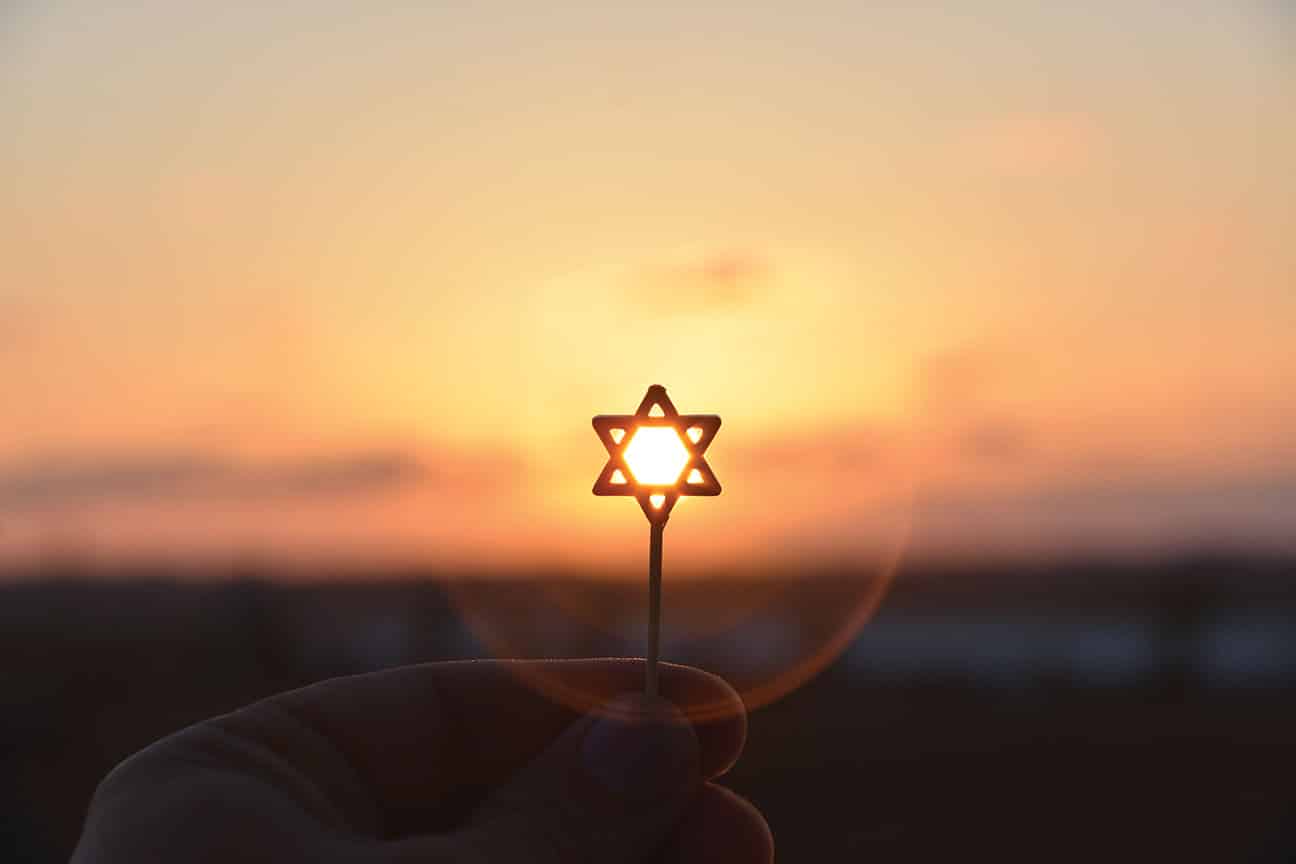 tzahiV/Getty Images
tzahiV/Getty Images It can get weird to keep up with the news while being ensconced in a holy city like Tsfat. In Los Angeles, where I live, there’s a natural flow between the news and my conversations. I don’t feel that here. Sure, people need to keep up with war news, given the need to rush to bomb shelters when you hear a siren. But the news is not an obsession. The rhythms of Torah and the struggles of daily life are what dominate.
So, it’s unusual that meeting a religious French artist in this isolated enclave gave me some perspective on what is happening now in America.
What is happening, to put it bluntly, is that Jew hatred has reached an alarming level even for those of us who don’t easily get alarmed. It’s hard to keep up with all the incidents, especially on college campuses. Many Jews are afraid. It’s as if Europe has come to America. Yes, we’re still in a free country and we’re free to fight back, but this has become an ugly fight none of us wanted. We’d much rather dance at weddings.
What is happening, to put it bluntly, is that Jew hatred has reached an alarming level even for those of us who don’t easily get alarmed.
Of all the recent incidents, I’d have to say this one memorable question best summarizes the sorry state of affairs for American Jews:
“Is it considered harassment to call for the genocide of Jews?”
The question came from New York Republican Rep. Elise Stefanik to the presidents of three top universities in a congressional hearing on Dec. 5. None of the leaders — from Harvard University, the Massachusetts Institute of Technology and the University of Pennsylvania—could answer with an unqualified “yes.” They all gave their own versions of “it depends.”
This troubling spectacle has now blown up on the internet. Remember, these are leaders of our most elite institutions who go overboard to protect minority groups against microaggressions but can’t bring themselves to protect Jews against the nastiest macroaggression. Indeed, calling for such things as “globalize the intifada” is calling for the genocide of Jews. This is dangerous speech that incites violence and creates a hostile environment for Jewish students.
Sadly, but not surprisingly, this bullying of Jews has spread across the country, adding a fresh level of venom to the world’s oldest hatred.
The result is that American Jewry is completely focused at the moment on the fight at hand, and for good reason. Countless Jewish activist groups have mobilized, using every weapon at their disposal, from the legal system to physical security measures to social media influencing. We’re now in hand-to-hand combat, which makes it understandably hard to see beyond the combat.
And yet, there is value in seeing beyond the combat.
Which brings me to that mystical French artist from Tsfat.
His name is Yoel Tordjman. I met him at a synagogue in the Old City. What struck me about him was not what he said to me (he’s not the schmoozer type) but what I found out later from a video on his website.
“What does it mean to be Jewish?” a filmmaker asked him (in French).
“It’s the searching to be,” he replied.
Tordjman reflected on the circular rhythms of life, on the fact that everything is always in motion. Humans look for solutions, stability, certainty, a beginning and an end– but a circle has neither.
The universe is always in motion, he explained. This motion is what creates life, what creates the seasons. Humans look for the stability of four distinct seasons, but even those seasons are an illusion. The universe has seasons within the seasons. The movement never stops; it’s permanent.
Given that everything is in motion, it would make sense, as Tordjman suggests, that being a Jew is the continuing search for what it means to be Jewish.
That search has grown exponentially in the wake of the October 7 pogrom and the ensuing rise in antisemitism. More and more Jews have been confronting what it means to be Jewish. With so many feeling under siege, a common response has been: It means fighting for our people.
But that fight, like everything else, is not static. It has no beginning or end. It has no fixed solutions, no finite point. Our fights, our lives, our Jewishness, are all in constant motion, in resonance with the centuries of motion of our ancestors.
Hanukkah, then, could not come at a better time. The holiday is about motion and transformation. We don’t settle for one static candle on one finite night. Each night, we go further. We keep adding light. We keep moving.
If being a Jew means searching for what it means to be Jewish, we ought to bring some of that search, some of that motion, some of that Hanukkah energy, into our present fights against antisemitism. We may be in maximum fighting mode at the moment, but being a Jew means more than the fight; it also means spreading light.
Is it possible to spread light while we’re engrossed in such a difficult fight? That’s for each one of us to answer. Maybe the Festival of Light can help show us the way. As we light a new candle every night, as we keep searching for the meaning of being Jewish, we may conclude that there’s no need to choose between the fight and the light, because the Jews and the world need both.
When we realize that nothing has a finish line, not the light nor the fight nor our Judaism, it’s a lot easier to follow the universe and embrace all three– whether we live in Tsfat or L.A., whether we read the news or not.
Happy Hanukkah.























 More news and opinions than at a Shabbat dinner, right in your inbox.
More news and opinions than at a Shabbat dinner, right in your inbox.